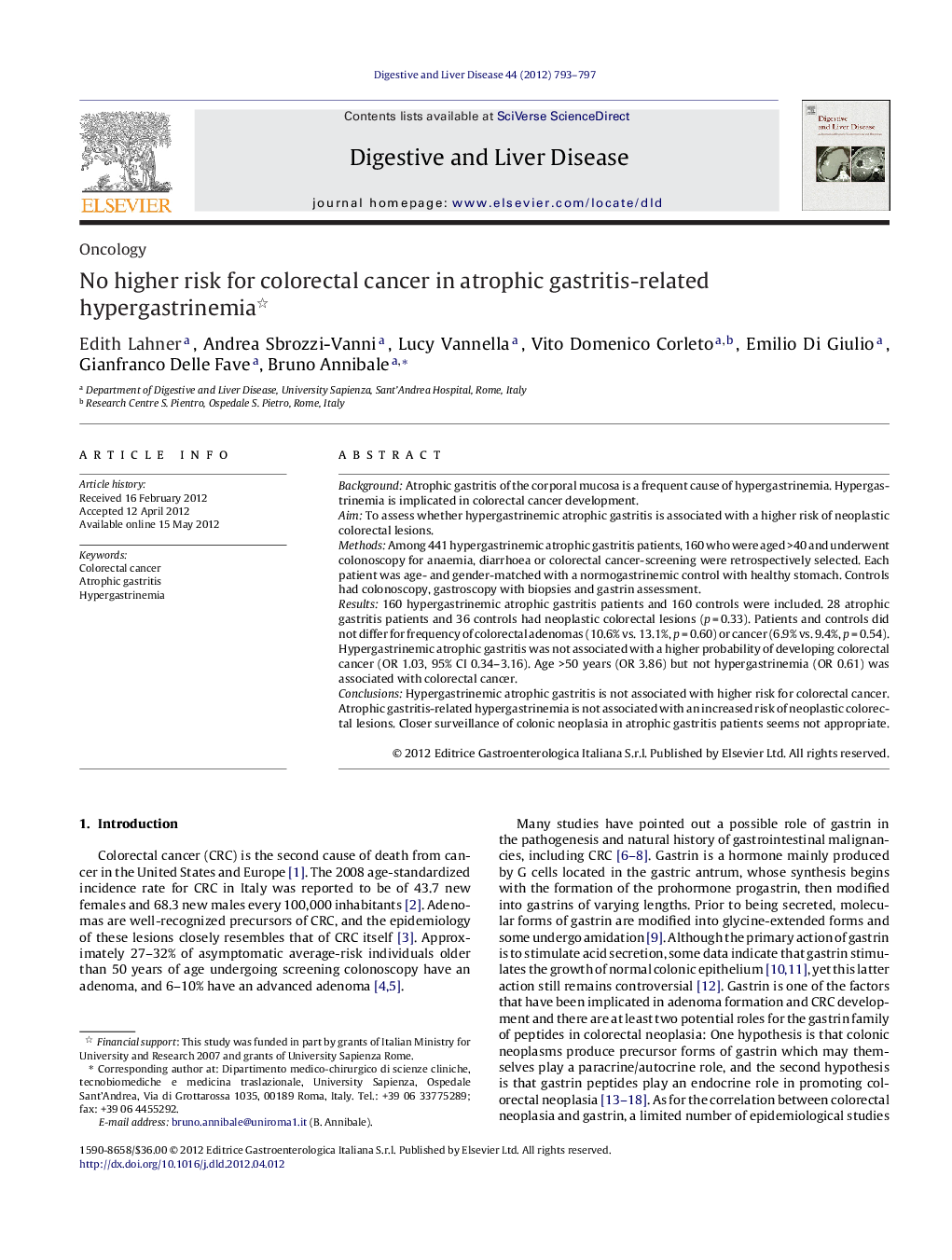| Article ID | Journal | Published Year | Pages | File Type |
|---|---|---|---|---|
| 3262809 | Digestive and Liver Disease | 2012 | 5 Pages |
BackgroundAtrophic gastritis of the corporal mucosa is a frequent cause of hypergastrinemia. Hypergastrinemia is implicated in colorectal cancer development.AimTo assess whether hypergastrinemic atrophic gastritis is associated with a higher risk of neoplastic colorectal lesions.MethodsAmong 441 hypergastrinemic atrophic gastritis patients, 160 who were aged >40 and underwent colonoscopy for anaemia, diarrhoea or colorectal cancer-screening were retrospectively selected. Each patient was age- and gender-matched with a normogastrinemic control with healthy stomach. Controls had colonoscopy, gastroscopy with biopsies and gastrin assessment.Results160 hypergastrinemic atrophic gastritis patients and 160 controls were included. 28 atrophic gastritis patients and 36 controls had neoplastic colorectal lesions (p = 0.33). Patients and controls did not differ for frequency of colorectal adenomas (10.6% vs. 13.1%, p = 0.60) or cancer (6.9% vs. 9.4%, p = 0.54). Hypergastrinemic atrophic gastritis was not associated with a higher probability of developing colorectal cancer (OR 1.03, 95% CI 0.34–3.16). Age >50 years (OR 3.86) but not hypergastrinemia (OR 0.61) was associated with colorectal cancer.ConclusionsHypergastrinemic atrophic gastritis is not associated with higher risk for colorectal cancer. Atrophic gastritis-related hypergastrinemia is not associated with an increased risk of neoplastic colorectal lesions. Closer surveillance of colonic neoplasia in atrophic gastritis patients seems not appropriate.
